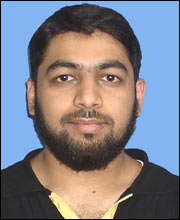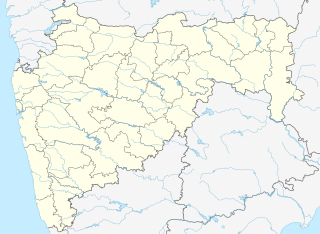Related Research Articles
The Students' Islamic Movement of India is a banned terrorist organisation that was formed in Aligarh, Uttar Pradesh in April 1977. The stated mission of SIMI is the ‘liberation of India’ by converting it to an Islamic land. The SIMI, an organisation of extremists has declared Jihad against India, the aim of which is to establish Dar-ul-Islam by either forcefully converting everyone to Islam or by violence. The Indian government describes it as a terrorist organisation, and banned it in 2001, shortly after the 9/11 attacks. The ban was lifted in August 2008 by a special tribunal, but was reinstated by K.G. Balakrishnan, then Chief Justice, on 6 August 2008 on national security grounds. SIMI's ideology and its objectives create fear and resentment among the people of India.

The Popular Front of India (PFI) is an extremist Islamic organisation in India formed as a successor to National Development Front (NDF) in 2006, and often have been accused for involvement in anti-national and anti-social activities by the Indian Government. It acquired a multi-state dimension by merging with the National Development Front, Manitha Neethi Pasarai, Karnataka Forum for Dignity and other organisations. The PFI describe themselves as a neo-social movement committed to empower people to ensure justice, freedom and security. The organisation has various wings to cater to different sections of society, including the National Women's Front and the Campus Front of India.

Kafeel Ahmed was an aeronautical engineer and one of two terrorists behind the 2007 UK terrorist incidents. He died of injuries sustained in the second of these incidents, a vehicle-ramming attack at Glasgow Airport.
The 2008 Ahmedabad bombings were a series of 21 bomb blasts that hit Ahmedabad, India, on 26 July 2008, within a span of 70 minutes. Fifty-six people were killed and over 200 people were injured. Ahmedabad is the cultural and commercial heart of Gujarat state, and a large part of western India. The blasts were considered to be of low intensity, and were similar to the Bangalore blasts, Karnataka which occurred the day before.
The Indian Mujahideen is a Islamic terrorist group led by Abdul Subhan Qureshi who is now in Delhi Police custody.
The 13 September 2008 Delhi bombings were a series of five synchronised bomb blasts that took place within a span of few minutes on Saturday, 13 September 2008 at various locations in Delhi, India. The first bomb exploded at 18:07 IST, and four other blasts followed in succession, with at least 20 people killed and over 90 injured.
Abdul Qureshi is a most wanted islamist bomb-maker and one of the most wanted terrorists in India and has been called India's Osama Bin Laden. He is suspected to be associated with the Students Islamic Movement of India (SIMI), and is thought to have been responsible for participating in the Bangalore, Ahmedabad and Delhi bombings. He is also a suspect in the 11 July 2006 Mumbai train bombings. He is more commonly known as Tauqeer and is believed to be the signer in the Indian Mujahideen terror email as al-Arabi. Abdul Subhan Qureshi was arrested by Delhi Police in January 2018. He was listed on the NIA Most Wanted list.
The 27 September 2008 Delhi bombing in India's second largest metropolis left three people dead and twenty-three more injured, on an infamous Saturday. The explosion occurred at 14:15 IST, in Mehrauli's Electronic market called Sarai. Initially, there were reports of two persons, including a thirteen-year-old boy, named Santosh being killed in the attack. However, the next day the death toll rose to three. About 23 others were injured and were treated at AIIMS and Fortis Hospital. The bombing took place exactly two weeks after the five serial blasts in Delhi on 13 September 2008.

The National Investigation Agency (NIA) is India's counter-terrorist task force. The agency is empowered to deal with terror related crimes across states without special permission from the states. The Agency came into existence with the enactment of the National Investigation Agency Act 2008 by the Parliament of India on 31 December 2008, which was passed after the deadly 26/11 terror attack in Mumbai. Such an attack clearly surfaced the failure of intelligence and ability to track such activities by existing agencies in India, hence the government of India realized the need of a specific body to deal with terror related activities in India, thereby establishing the NIA. Headquartered in New Delhi, the NIA has branches in Hyderabad, Guwahati, Kochi, Lucknow, Mumbai, Kolkata, Raipur and Jammu. It maintains NIA Most Wanted list.
During and immediately after the 2008 Mumbai attacks the news media worldwide broadcast incorrect factual information on a scale often seen in a fog of war. Erroneous reporting on the 2008 Mumbai attacks included false information concerning the number of attackers, their nationality, their organizational affiliations, origins, and the methods of transport they had used. Theories and speculations were openly aired by various commentators that were later proved to be wrong. Many such speculations, such as the involvement in the attacks of the "Deccan Mujahideen", were widely reported by media worldwide. Various news outlets carried opinion pieces and unattributed theories about the origins of the attackers which were unfounded.

The 2010 Pune bombing occurred on 13 February 2010 at approximately 19:15 Indian Standard Time, when a bomb exploded at a German bakery in the Indian city of Pune, Maharashtra. The blast killed 18 people, and injured at least 60 more, including an Italian woman, two Sudanese students and an Iranian student.
The 2010 Jama Masjid attack occurred on 19 September 2010 when two gunmen on a motorcycle fired at a tourist bus near Gate 3 of the Jama Masjid in Old Delhi, India and injured two Taiwanese tourists. The incident provoked fears about security for the upcoming Commonwealth Games in Delhi. About three hours later a car parked approximately 150 meters from the spot caught fire, apparently due to a minor blast.
2010 Bangalore stadium bombing occurred on 17 April 2010 in M. Chinnaswamy Stadium, Bangalore, India. Two bombs exploded around a heavily packed Cricket stadium in which fifteen people were injured. A third bomb was found and defused outside the stadium. According to the Bangalore City Police, the blasts were caused by low-intensity crude bombs triggered by timers.
Riyaz Bhatkal, also known as Shah Riyaz Ahmad Mohammed Ismail Shahbandari aka Riyaz Ismail Shahbandri, is the founder leader and a wanted terrorist of Indian Mujahideen, a terrorist group based in India. Riyaz Ismail Shahbandri is one of the Indian Mujahideen's three top commanders and is currently based in Karachi, Pakistan along with his brother Iqbal Bhatkal.
Iqbal Bhatkal aka Iqbal Shahbandri is the ideologue, leader and wanted terrorist of Indian Mujahideen, a terrorist group based in India. He is the brother of Riyaz Bhatkal aka Shah Riyaz Ahmad Mohammed Ismail Shahbandari, one of the Indian Mujahideen's three top commanders and is currently based in Karachi, Pakistan.
Sayed Zabiuddin Ansaria.k.a.Abu Hamza or Abu Jundal is an Indian Islamic militant belonging to Indian Mujahideen and Lashkar-e-Taiba. He is accused of being involved in 2008 Mumbai attacks. Zabiuddin Ansari 's name was listed in the list of "50 most wanted criminals sheltered in Pakistan" released by India on 21 May 2011. He served as the handler of the 10 LeT terrorists during 2008 Mumbai attacks.
Mohammed Ahmed Siddibappa, named Yasin Bhatkal by Indian investigative agencies, was the founder leader of the proscribed terrorist organisation Indian Mujahideen (IM). He was listed on the NIA Most Wanted until his arrest on the India-Nepal border near Motihari, Bihar on 28 August 2013. Questions were raised after his arrest that whether Yasin undertook arms and explosive training in Pakistan or not. He has been sentenced to death by a NIA court in Hyderabad on 19 December 2016.

On 7 July 2013 a series of ten bombs exploded in and around the Mahabodhi Temple complex, a UNESCO World Heritage Site in Bodh Gaya, India. Five people, including two Buddhist monks, were injured by the blasts. Three other devices were defused by bomb-disposal squads at a number of locations in Gaya.
Syed Abdul Karim alias Tunda, was a bomb maker of terror outfit Lashkar-e-Toiba, and was accused of masterminding over 40 bombings in India supported by Pakistani terrorists He was arrested by Indian authorities on 16 August at the India-Nepal border. However, the exact timings of this arrest is disputed with various versions being reported.
The banned Islamist terror group Students Islamic Movement of India (SIMI) is known to have operated several terrorist training camps across India to train its members to carry out bombings and other subversive acts.
References
- 1 2 "India wins another gulf war, gets Fasih". The Times of India . 30 June 2012. Retrieved 30 June 2012.CS1 maint: discouraged parameter (link)
- ↑ "Maha police keen to grill Fasih Mahmood". Deccan Chronicle . 2 July 2012. Archived from the original on 3 July 2012. Retrieved 22 August 2012.CS1 maint: discouraged parameter (link)
- ↑ "Govt. taking steps to bring back terror suspect Fasih: Chidambaram". The Hindu . Press Trust of India. 4 July 2012. Retrieved 4 July 2012.CS1 maint: discouraged parameter (link)
- 1 2 3 "Interpol warrant for Bangalore stadium attack suspect soon: police". The Hindu . 29 May 2012. Retrieved 29 May 2012.CS1 maint: discouraged parameter (link)
- ↑ "Simi to IM: Fasih key to change of identity". Hindustan Times . 3 July 2012. Archived from the original on 4 July 2012. Retrieved 3 July 2012.CS1 maint: discouraged parameter (link)
- ↑ Devesh K. Pandey; Mohammad Ali; Sandeep Joshi (22 October 2012). "Fasih quizzed soon after landing". The Hindu. New Delhi. Retrieved 25 November 2012.CS1 maint: discouraged parameter (link)